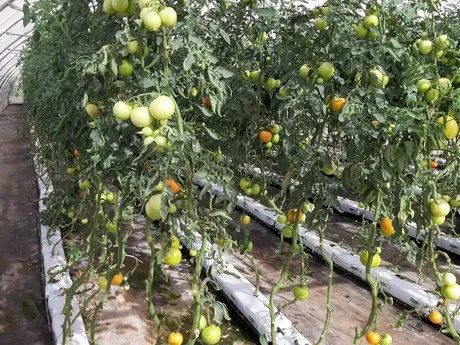Cooperation, trade and investment opportunities in three promising value chains highlighted. The Food and Agriculture Organization (FAO) Jordan Office has carried out a rapid appraisal of three selected value chains that are of export potential and accessible to high value markets. These value chains were also highlighted for their potential to positively impact both women and men small-scale farmers, in particular youth, while also being environmentally sustainable. These value chains offer good opportunities for cooperation trade and investment supported by Dutch funded programmes.
A recent High-level meeting on ‘optimizing agricultural value chains’ took place to review the findings of FAO’s value chain study and to discuss priority actions and key areas of investment to address these with public and private stakeholders. One the selected priority value chains was Tomatoes, based on annual production, economies of scale, planted area, export performance, seasonality, untapped export market potential.
The tomatoes value chain
Tomatoes is by far Jordan's top produced agricultural product; with total production reaching about 700 thousand tons in 2017. The total planted area is 122 thousand dunums, mainly in the Jordan valley with mainly protected agriculture (greenhouses), and Mafraq with mostly open farms; new growing areas include Irbid and Ramtha in the north. Unplanned expansion has led to excess supply that pushed local prices down, especially with the gradual decrease in exports, and the small size of the tomato processing industry (ketchup, juice..). Labour is dominated by foreign workers, mainly Egyptians, recent labour laws and regulations lead to increased cost of labour (work permits); however, job creation possibilities are more related to added value post-harvest services (grading, packaging, processing). Production must be sold through central markets, with prices controlled by agents & wholesalers; in many common cases, the wholesalers provide financing to farmers for pre-planting and growing phases, and get paid upon harvesting, leading to increased indebtedness cases. Exports are organized mainly through central markets’ agents. Potentials to generate better income include added value service such as sorting and packing, in addition to the organic niche market, and product diversification.

Opportunities for Dutch experts and technology providers
The information about each value chain will inform current and future interventions by the Netherlands. Along the value chain there are opportunities for Dutch experts and technology providers to engage and test horticultural innovation and practices that could contribute to addressing the 3x3x3 challenge (tripling horticultural production with three times less water and three times less energy), thus contributing to increased incomes and jobs for refugees and vulnerable host communities.
Post-harvesting services and facilities
The study confirms the urgent need for enhancing the quality of post-harvest services and facilities, which is a priority for the Dutch programming for the upcoming years. However, the proposed interventions, as an outcome of the VC assessment study, are important to steer the programming phase for the Netherlands in Jordan.
Source: agroberichtenbuitenland.nl
